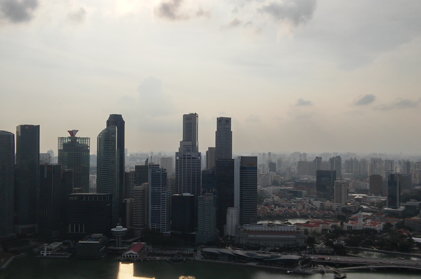Complex Urban: linking hard and soft urban systems
 Cities are complex adaptive systems, combining spatiotemporal and behavioural structures that are affected by and affect individual and collective agents. Newly available urban data sets carry potential for the development of methods for an evidence-based understanding of cities as interrelated and linked systems.
Cities are complex adaptive systems, combining spatiotemporal and behavioural structures that are affected by and affect individual and collective agents. Newly available urban data sets carry potential for the development of methods for an evidence-based understanding of cities as interrelated and linked systems.
Although smart technologies are often seen as solutions to pressing global challenges, exiting initiatives use limited data from specific urban systems (such as public transport or energy consumption in homes). These approaches often neglect correlations and causalities between ‘soft’ (economic, ecological and social) and ‘hard’ (engineered) urban systems.
The ESRC funded Strategic Network: Data and Cities as Complex Adaptive Systems (DACAS) aims to progress new analytical frameworks to understand urban processes, developing innovative technological applications and practical tools for urban planning, design and governance.
DACAS brings together noted academics with backgrounds in the social and natural sciences, including architects, engineers, physicists, geographers, mathematicians and ecological economists. We are based in Brazil, China, Japan and the UK. Our non-academic partners, involved from the onset in order to respond directly to real and specific user needs, include the Royal Institute of British Architects (RIBA), Future Cities Catapult, Association of Greater Manchester Authorities and Greater Manchester Chamber of Commerce.
Our aim is to establish common terminology and identify relevant urban systems data and sources across different countries. We will share and compare discipline-specific modelling practices (such as the use of equivalence and analogy in physics or the description of relational structure in the social sciences) to approach some fundamental questions: how can behaviours of distinct hard and soft systems be linked by cause-effect relationships in multi-layered networks? How can innovative technological applications be developed to reflect the interlinked behaviour of real urban systems – and how can they support their planning and design?
Throughout 2016, we will hold four collaborative events designed to help us approach these questions: three workshops and one summer school.
Hosted by the Manchester School of Architecture and the Greater Manchester Chamber of Commerce, we launched DACAS on 1-3 February 2016. Our first meeting included keynotes by Michael Weinstock (Architectural Association) and Peter Allen (Cranfield University); presentations by DACAS partners and non-academic stakeholders; and a range of roundtables aiming to identify urgent urban challenges and to help us refine our research agenda.
Our next workshop, Modelling Urban Systems, will take place São Paulo, Brazil, 20-24 June 2016. Here, the emphasis will be on techniques for modelling linked urban systems based on data. Activities will revolve around the needs of local government, planning departments and NGO representatives. Roundtables will focus on the challenges surrounding urban informality in developing contexts and how these can be addressed using digital tools.
The summer school in Manchester, ‘Understanding Urban Transformations through Data’, will take place 12-16 September 2016. The summer school will offer lectures, workshops and other training activities on data analysis, urban systems modelling and technological applications. It will provide an opportunity to investigate cutting edge theoretical and methodological questions around data and cities as complex adaptive systems.
 Our final workshop, ‘Digital Tools for Urban Challenges’, will take place in Wuhan, 24-28 October 2016. It will focus on the application of interdisciplinary theoretical frameworks and modelling techniques for the design of digital tools that reflect urban complexity and aid decision makers and practitioners. In intensive workshops, we will share knowledge development technology and discuss how these can be improved to meet the needs of planning policy and design – with special emphasis on the context of rapidly urbanising China.
Our final workshop, ‘Digital Tools for Urban Challenges’, will take place in Wuhan, 24-28 October 2016. It will focus on the application of interdisciplinary theoretical frameworks and modelling techniques for the design of digital tools that reflect urban complexity and aid decision makers and practitioners. In intensive workshops, we will share knowledge development technology and discuss how these can be improved to meet the needs of planning policy and design – with special emphasis on the context of rapidly urbanising China.
By the time the project comes to an end in December 2016, we will have developed an extensive and multi-disciplinary toolkit for gathering and interpreting urban data. All of these activities inform the work of Complexity, Planning and Urbanism (CPU), a digital research-based MArch atelier at the Manchester School of Architecture. This year, transgressing the boundaries of traditional architectural education, we collaborate with Emergent Technologies and Design (EmTech) at the Architectural Association in London on the design of ‘Future City Systems’.
Please feel free to get in touch if you wish to be involved in our Network activities. PhD and early career researchers should keep an eye on our project website: bursaries to attend our events will be available! The Urban Transformations project page provides more information on the project and research team.